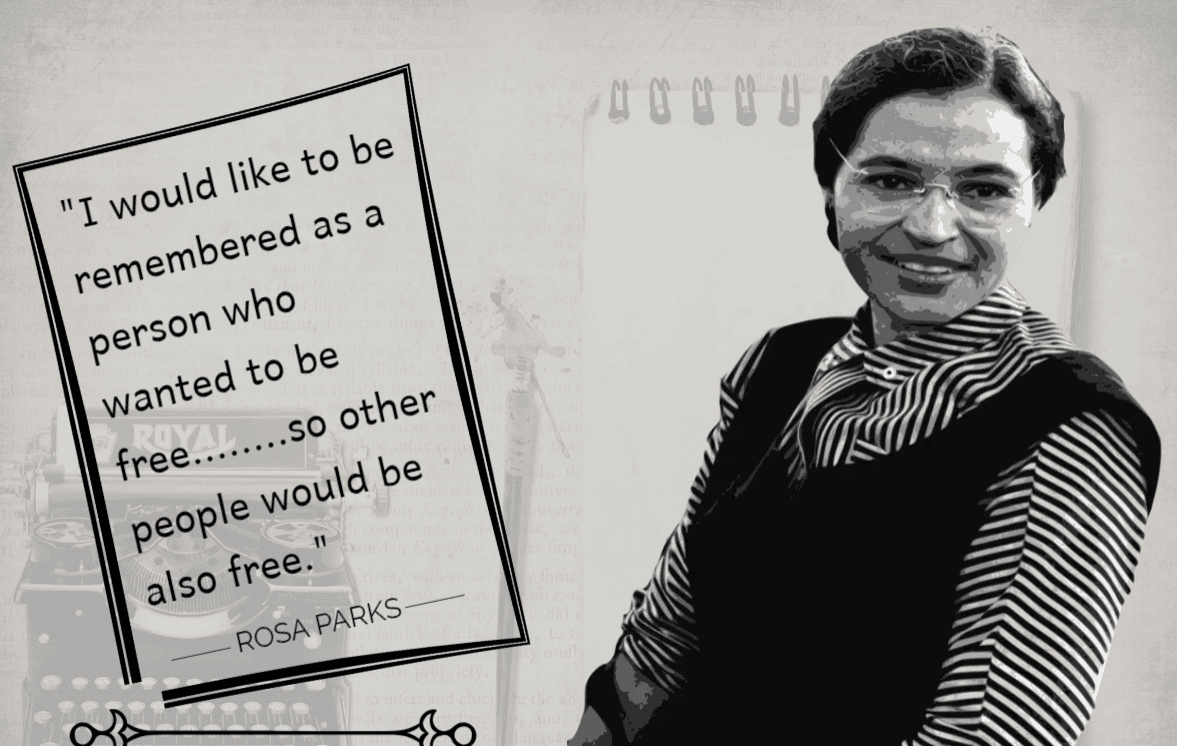Welcome to a journey through the heart of one of history’s most transformative periods. This guide explores women’s pivotal role in the civil rights movement, an era that reshaped America’s social, political, and legal landscapes.
Why Focus on Women?
While many narratives of the civil rights movement highlight the contributions of male leaders, the women who were just as instrumental to its success often remain unsung. Their stories of courage, persistence, and triumph are not just inspiring—they are educational and a call to action for current and future generations.
For Entry-Level Job Seekers
If you’re beginning your career, understanding the struggles and successes of these powerful figures can offer valuable lessons in resilience and advocacy. This guide honors their legacy and connects their stories to ongoing efforts for equality and justice in the workplace and beyond.
Dive into the rich history of these remarkable women and gain insights that could influence your career path and personal growth.
The Early Struggles
The women of the civil rights movement had to overcome significant challenges. Despite their critical roles, their efforts were often overshadowed by their male counterparts.
Legal and Social Barriers
Initially, women activists faced dual hurdles: racial discrimination and gender bias. Laws and societal norms limited their education, employment, and political engagement opportunities. Many were relegated to supporting roles, seldom receiving recognition for their contributions. For further information on the broader legal challenges of the era, visit this educational resource: National Archives on Civil Rights.
Economic Challenges
Economic insecurity played a huge role in limiting the opportunities for many African American women during the early civil rights period. Limited access to well-paying jobs meant that most women had to juggle activism with low-income work to support their families.
Internal Movement Dynamics
Within the movement itself, women often battled for their voices to be heard. Despite their pivotal roles in organizing boycotts, sit-ins, and marches, leadership positions were predominantly held by men. Thankfully, their persistence led to increased recognition over time. To explore some personal stories of these courageous women, check out the detailed narratives here: Women’s History Museum on Civil Rights.
Turning Point
A critical moment came with the Montgomery Bus Boycott of 1955-56, where Rosa Parks’ defiance symbolized resistance against racial segregation. However, many other women also played crucial roles during this event and beyond, initiating real change in the civil rights movement.
All these difficulties didn’t deter these strong women; instead, they bonded even more, forming networks essential in pushing the movement forward.
Key Figures and Their Legacy
The women of the civil rights movement left an indelible mark on history, with several becoming iconic figures.
Rosa Parks
Rosa Parks is perhaps the most famous woman of the civil rights era, known for her pivotal role in the Montgomery Bus Boycott. Her courage sparked a city-wide boycott and laid the groundwork for further civil rights actions. Read more about her life’s work here.
Ella Baker
Ella Baker’s extensive organizing experience was crucial in the success of influential groups like the Southern Christian Leadership Conference (SCLC) and the Student Nonviolent Coordinating Committee (SNCC). Baker emphasized group-centered leadership and grassroots involvement, which remain pivotal in community organizing today. Discover more about her empowering approach here.
Fannie Lou Hamer
Fannie Lou Hamer rose from humble beginnings to become a powerful voice against racial oppression. Her impassioned plea at the Democratic National Convention in 1964 spotlighted the civil rights struggle nationally and internationally.
Legacy and Ongoing Influence
The work of these women and many unnamed others continues to inspire new generations of activists. They have left behind a legacy that not only reshaped their world but also continues to impact justice movements today.
Together, these women faced immense personal risk and fostered change that reshaped the entire fabric of society.
Organizations That Shaped the Movement
Many organizations were pivotal in supporting the women of the civil rights movement.
The Southern Christian Leadership Conference (SCLC)
This organization, co-founded by Dr. Martin Luther King Jr., heavily influenced the movement’s direction. Women organized many of the SCLC’s grassroots campaigns, also promoting nonviolent protests. Today, their methods are studied worldwide, showing their enduring relevance.
The Student Nonviolent Coordinating Committee (SNCC)
SNCC was critical in involving younger African Americans in the civil rights movement. Women, including activists like Diane Nash, played leading roles in its initiatives, which included sit-ins and freedom rides. Their strategies remain influential in modern protest movements.
Impact and Endurance
These organizations helped amplify the voices of African American women, pushing their concerns onto a national stage. As a result, the women of the civil rights movement were able to challenge systemic racism and sexism more effectively. Their efforts are still recognized today in educational curriculums and cultural analyses.
The collective action fostered by these groups underscored the importance of solidarity and strategic planning in achieving societal change.
Notable Achievements and Milestones
The women of the civil rights movement accomplished significant milestones that changed the course of American history.
The Right to Vote
The passage of the Voting Rights Act of 1965 stands as a monumental achievement. This act, championed by activists like Fannie Lou Hamer and Ella Baker, effectively dismantled many African American voting rights barriers. To understand its impact, visit History.com.
Education and Integration
Women were at the forefront of desegregating schools and promoting equal education. Their efforts were catalyzed by cases like Brown vs. Board of Education, where NAACP lawyer Constance Baker Motley played a key role.
Public Accommodations and Employment
Activists also fought for equal access to public accommodations and nondiscriminatory employment practices. These efforts culminated in the Civil Rights Act of 1964, which outlawed segregation in public places and banned employment discrimination based on race, color, religion, sex, or national origin. This legislation directly resulted from the strategic planning and protests organized by these courageous women.
Impacting Legislation
Women’s active participation and testimonies influenced public opinion and pressed lawmakers to enact these pivotal laws. Their legacy is evident in the continued fight for equality and justice across various sectors.
The strides made by women in the civil rights movement laid the groundwork for future generations to continue advocating for equality and justice.
Challenges They Faced
Despite significant achievements, women of the civil rights movement encountered numerous challenges.
Media Representation
Media often overshadowed women’s roles, focusing primarily on male leaders. This lack of recognition meant their contributions were frequently underestimated. For context on media influence during the civil rights era, visit the Library of Congress.
Sexism within the Movement
Sexism was not just a societal problem but also prevalent within civil rights groups. Women had to constantly advocate for equal representation in leadership and decision-making processes.
Physical and Emotional Toll
The dangers these activists faced were immense. They endured arrest, violence, and threats against their lives. Such risks took a significant toll on their physical and emotional health. For insight into the dangers they faced, read through accounts of Civil Rights Movement Veterans.
Economic Hardships
Activism often came with economic sacrifices. Many women lost jobs or struggled to find employment due to their activism, further straining their financial stability. Their resilience in the face of these economic challenges is both inspiring and a testament to their dedication.
Despite these adversities, the women of the civil rights movement persevered, carving paths for future reforms.
Current Impacts and Legacies
The enduring legacies of the women of the civil rights movement are evident in various contemporary issues and movements.
Inspiring Modern Activism
Today’s activists draw direct inspiration from the strategies and courage exhibited by these women. Movements like Black Lives Matter continue to apply lessons from past civil rights struggles to fight against modern injustices.
Educational Reforms
Their stories have influenced integrating more inclusive and accurate historical accounts in school curriculums. This ensures that future generations understand these women’s vital roles in shaping our society.
Legislation and Policy Changes
The groundwork laid by these activists has facilitated ongoing legislative reforms aimed at equality and justice. Their impact echoes in laws that protect civil rights and ensure gender equality in the workplace and beyond.
Cultural Recognition
Various films, books, and educational programs have been developed to honor their contributions. These narratives highlight the women’s pivotal roles and ensure their stories are not forgotten. For more information on their cultural representation, visit Smithsonian Magazine.
The legacy of these courageous women continues to ignite change, shaping a societal vision of justice and equality for all.
Connection to Broader Civil Rights Efforts
The women of the civil rights movement were pivotal in their own right and deeply connected to broader civil rights efforts globally.
Global Influence
The strategies and successes of these women resonated worldwide, inspiring similar movements in other countries. Their advocacy and methods were blueprints for fighting oppression and seeking justice globally.
Intersectionality and Women’s Rights
Their struggles and achievements also significantly contributed to the broader dialogue about intersectionality in women’s rights. Understanding the overlapping social identities and related systems of oppression was essential for later feminist movements. For more insights, visit UN Women.
Continued Advocacy in America
Domestically, these women’s efforts helped lay the groundwork for continued civil rights advocacy, influencing areas such as LGBTQ+ rights, disability rights, and more. This interconnectedness underscores the ongoing relevance of their work. Explore this relationship further at ACLU Racial Justice.
The ripple effects of their activism are still felt today, not only within the context of racial equality but across all spectrums of civil rights.
FAQs
This section answers some frequently asked questions about the women of the civil rights movement, highlighting their contributions and continuing influence.
What were the main goals of women in the civil rights movement?
Their goals included achieving equal voting rights, desegregation of public spaces, and equal employment opportunities.
How did women’s roles in the civil rights movement differ from men’s?
Women often worked behind the scenes, organizing, strategizing, and educating, though many also took prominent public roles.
Can you name more women who were influential in the civil rights movement?
Beyond the well-known figures, women like Septima Clark, Dorothy Height, and Jo Ann Robinson also made significant impacts.
What challenges do the descendants of these women face today?
Many continue to fight against racial and gender discrimination, striving to protect the gains made by past generations.
Where can I find more detailed accounts of these women’s lives and legacies?
Museums dedicated to civil rights, university archives, and specialized civil rights publications are excellent resources for in-depth information.
These insights foster a deeper understanding of the critical roles played by women in the civil rights movement.
Conclusion
The women of the civil rights movement played crucial roles that changed the fabric of American society. Their courage, intelligence, and resilience dismantled systemic barriers, enabling future generations to pursue greater equality.
Join Diversity Employment
Consider joining Diversity Employment to continue advocating for diversity, equality, and inclusion in the workplace and to take the next step in your diversity job search. Together, we can build on the legacies of these powerful women by promoting inclusive practices that benefit everyone.
Let us honor the women of the civil rights movement by continuing to fight for justice and equality in every arena.




